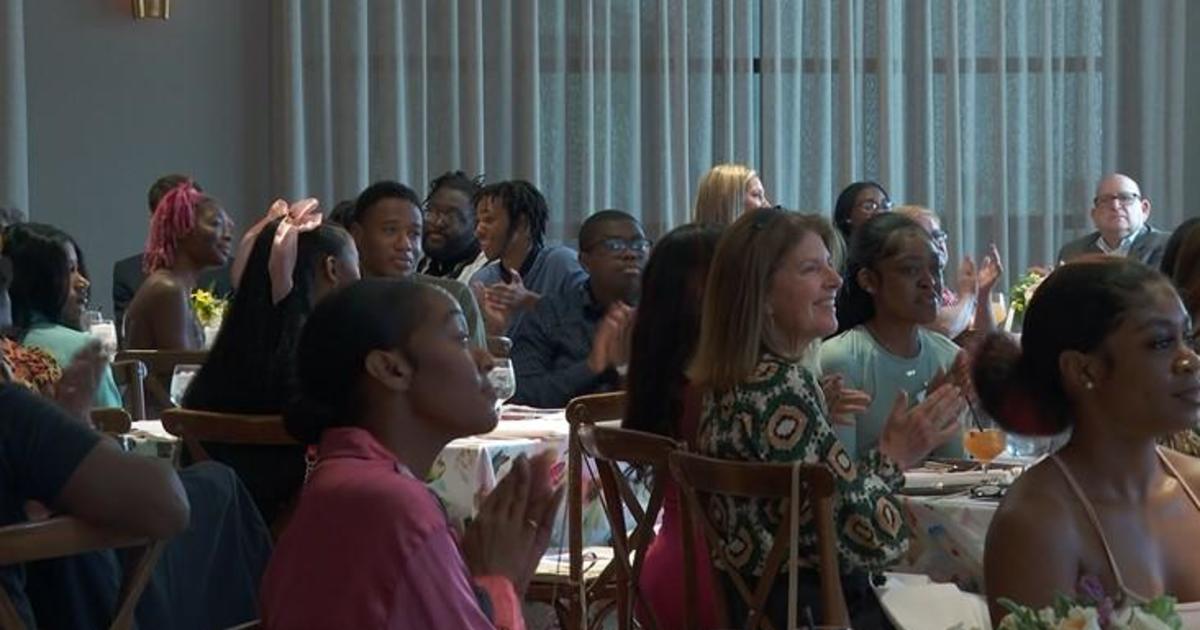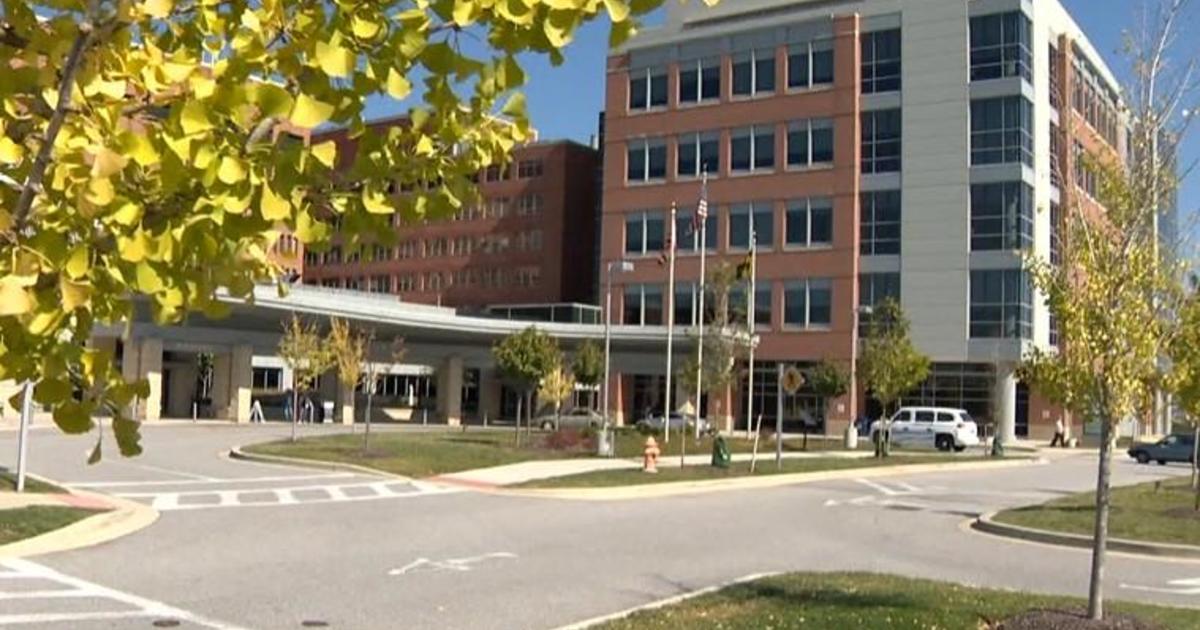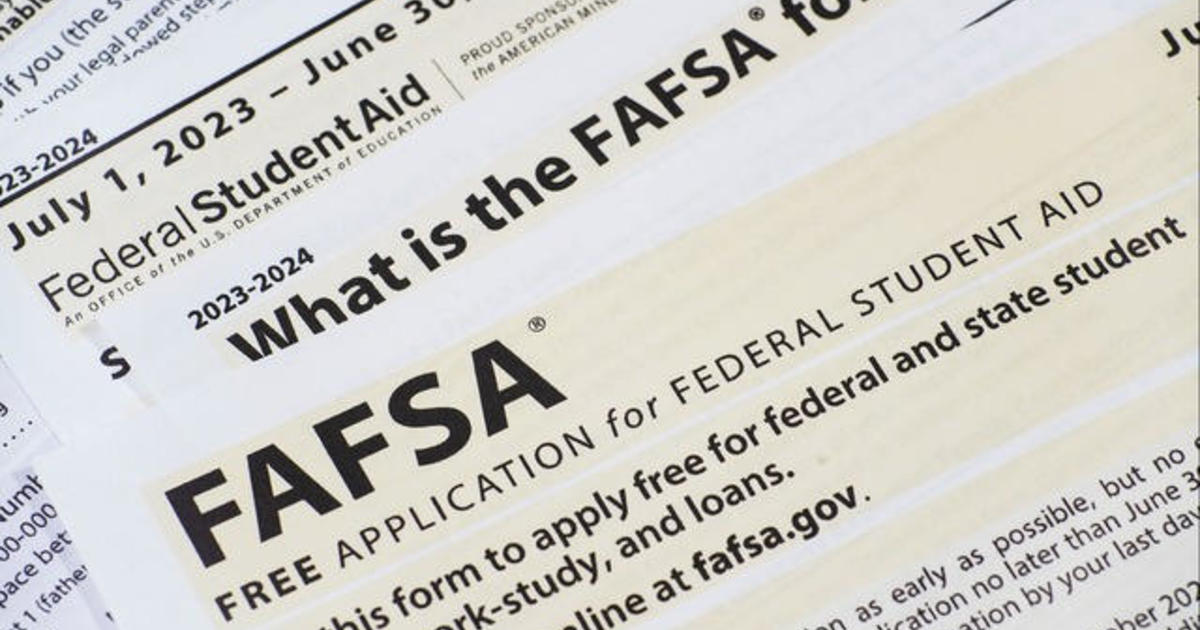How The Coronavirus Pandemic Is Affecting Our Kids' Mental Health
BALTIMORE (WJZ) -- When COVID slammed into our lives last March, pandemic learning and its trickle-down effects quickly became a hot-button issue enveloped in caution and controversy.
As school districts across Maryland prepare for a return to the classroom or a hybrid learning model, our students still face the enormity and uncertainty of one assignment in particular: coping with their mental health.
Classrooms, once brimming with laughter, lessons, birthday party invites and games were abruptly silenced last March when the pandemic forced students in front of computer screens.
Mi'kel is one of them.
"It is really stressful trying to learn all these things at once and not getting that personal connection between the work and the teacher together," she said.
Dr. Drew Pate, the Chief of Psychiatry and Behavioral Health at LifeBridge Health, tells WJZ that time away from the classroom and in-person learning and socialization can be detrimental to these students in the short term.
It's actually something he's witnessed this firsthand in his nearly 30 years of experience.
The Centers for Disease Control and Prevention data shows suicide is now the second-leading cause of death for people ages 10 to 24.
"I think most people are surprised when I tell them that two to three times more people die of suicide per year than die by homicide," said Dr. Pate. "But yet we hear so much more about homicide, which is a horrible societal issue, but we don't discuss suicide in the same way as community violence and among kids, we have been seeing it rise."
Even after COVID closed the curtain on life as they knew it, the show went on for the star-studded students at Baltimore City's Empowerment Academy.
"They're still performing," said Ms. Sherie Webb. "They are still doing the work."
Their theater arts teacher, Ms. Webb, wanted to hear directly from her students about how they were feeling about everything.
"The kids are able to express through those monologues really what's going on," she said, "so we heard the real deal."
Nasir, Mi'kel, Leon and Yashara confidently find refuge in their pandemic performances.
Nasir explains why he sprinkled humor throughout his monologue.
"In general, [to] make people laugh. It's more of a depressing time for others, so I thought might as well make it funny to make other people laugh, cheer them up," said Nasir. "And I also went for the perspective of how I usually see things."
With their teen years as the backdrop, these students know COVID now stars in a reoccurring role. But it's their daily resilience and support from teachers that keep these students center stage.
"Every single day she gives us a chart -- from one through nine -- and then all of those numbers have emotions on them," Mi'kel said, "and she asks us why we have those emotions so she can see what's going on in our personal lives."
She said the time away from the classroom has actually helped her grades, but she struggles with not seeing her friends every day.
Another student, Yasharah feels the same way.
"It's really easy to like ignore people. Like I don't mean to ignore them, but it's so much easier to pretend like you don't have friends," she said.
Principal Ashley Moore is proud of her students and staff for pushing through this pandemic and finding success. She touts herself as a "by any means necessary" leader but acknowledges the struggles of remote learning is now highlighting deep-rooted issues for many students.
"I think this is something that has always been present and it's always been prevalent. But what I also think is happening is that virtual learning -- because people are very focused on the children -- I think it's something that's becoming more amplified and it's definitely something that we need to start looking at," Moore admitted. "I know that a lot of educators have advocated for social, emotional learning to be more present in curriculum and to be taught to students so that we can really reach them in a different way."
Moore is right.
Pre-pandemic life did not mean students were immune to mental health challenges, but they skyrocketed after COVID-19 hit. By this fall, the CDC tells WJZ that emergency room visits for kids 12 to 17 jumped by nearly a third. Emergency room treatment for the younger ones, ages five to 11, rose nearly 25%.
The numbers are certainly staggering but Dr. Pate said, "there has been an explosion of mental health issues and even a rise in suicide for years now."
Now imagine this: you're not going to school, seeing your friends, doing the things you love, all while anxiety about what's next blankets you. Then one of the people you love most in this world is fighting COVID-19.
"At that very moment, I had to be the man of the house and take care of everybody," Leon said.
His father's diagnosis quickly became a life-defining moment for a teen boy with football goals.
"I was very scared because I love my father we do everything together. That's my guy," Leon continued. "And so it was very heartbreaking because he's on the older side so I was scared because it mainly affects older people and you can die from it. So I was very scared because I didn't want to lose my father."
Leon felt he had to be there for his mother.
"They've been married for such a long time and they had to be apart and had to sleep in separate rooms and everything," Leon added.
Leon also had to help care for his 5-year-old brother, who only vaguely understood the severity of the circumstances.
These students were not watching COVID effects on TV, they were living it.
"A very close friend of mine actually did have COVID and that was very hard on me because even though we didn't know each other very long," said Yasharah. "We were very close, like we talked every day, and we knew a lot about each other [and] knowing they had COVID scared me so much. I thought about it all the time."
And for Mi'kel, it meant a broken bond with her baby brother.
"In October, when my baby brother was first born, I was getting really sick at that time where as though I couldn't even hold him or near him because we didn't know what I had so that was kind of heartbreaking for me," she said.
Mi'kel and her family are confident she had the flu.
But this time away from school has proved that connection issues were far deeper than unreliable Wi-Fi.
"It's hard not seeing your friends and only seeing them through the screen. Sometimes, you don't know what they're feeling because they might be putting on like a fake smile and something is really wrong at home," Mi'kel admitted. "When we're in school, we can talk about it."
Fake smiles in the face of a brutal reality.
"It has been difficult knowing that you possibly won't have the high school experience that you've been wanting to have throughout your life. Like even me about to go into high school -- I always thought wow I'm gonna go into high school, I'm gonna be this person, and this that and the other," Yasharah continued, "but because of virtual learning you don't really know what's gonna happen and it is scary and it makes me sad."
Doctors and educators agree: the notably absent socializing makes for a failing grade.
It's clear kids crave the chance to shine again under life's bright lights. In time, they'll do it while reciting lines from their own scripts of survival.
The CDC has homework for parents, guardians and teachers. Experts suggest trying to create and maintain a new normal routine, encourage expression from your child or students and be alert to any change in behavior.
Dr. Pate encourages students not to keep their struggle a secret, to talk to someone they trust about what they're feeling and finding resources that can help.
The 24-hour National Suicide Prevention lifeline is 1-800-273-8255. You can also use their online chat option or text "home" to "741741."



